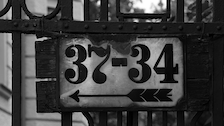Or search by topic
Number and algebra
Geometry and measure
Probability and statistics
Working mathematically
Advanced mathematics
For younger learners
Outdoor Maths
 Offering outdoor mathematics can be motivating and intriguing for many learners. The tasks in this feature suggest several different ways in which we can engage children in mathematics outside...
Offering outdoor mathematics can be motivating and intriguing for many learners. The tasks in this feature suggest several different ways in which we can engage children in mathematics outside...
You may like to consider creating a visually appealing outdoor maths area at school, which will encourage mathematical learning to take place in the context of children's outdoor play. Going on a maths trail or a maths walk in your locality gives learners opportunities to apply their mathematical knowledge and skills to 'real' contexts. Read Becky Moseley's article below which outlines key factors to consider as you plan a trail. You may also choose to use particular aspects of your environment (such as house numbers, window designs...) as a stimulus for working on specific mathematical ideas.
We hope you and your learners enjoy being mathematical outdoors.
You can watch a recording of the webinar in which we discussed the mathematical thinking which can be prompted by these activities.
Maths Trails - Encouraging Purposeful Outdoor Learning
Obstacle Course
Can You Do it Too?



Street Sequences



Growing Garlic



Circle Panes



Timber!




